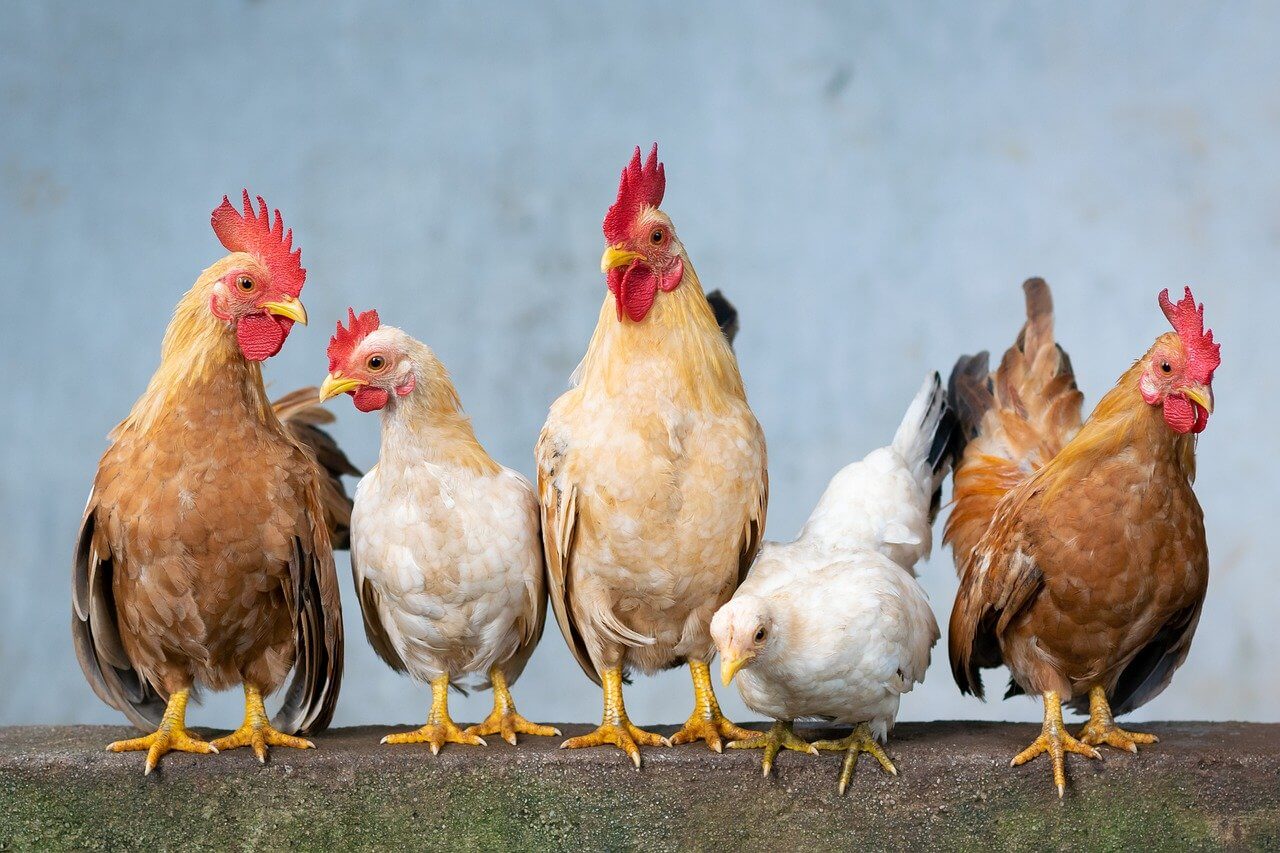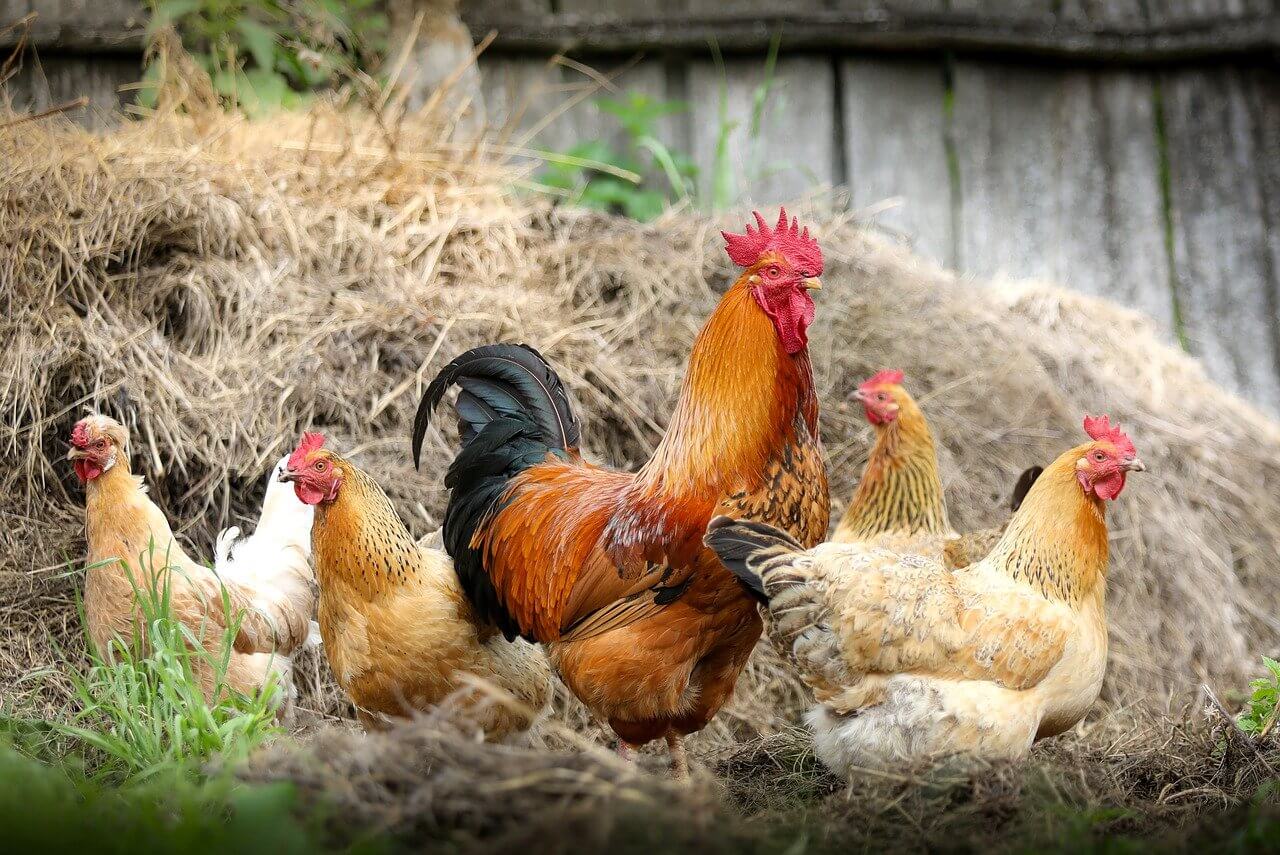The answer to do you need a rooster to fertilize eggs is both yes and no. It is standard practice, even on large poultry farms, for roosters to directly inseminate the hens, but, it can also be done using artificial insemination. Keeping a rooster so you can hatch out your own chicks can be a lot of fun and immensely rewarding. It’s also an inexpensive way of replenishing your flock.
What You'll Learn Today
Why Do You Need a Rooster?

It could be that you don’t. It all depends on what you keep your chickens for and if you want them to reproduce naturally.
If you have a flock of wonderful old heritage breed hens kept purely for their egg-laying ability, then you can choose to also have a rooster. But you only need a rooster if you want to breed and hatch chicks.
There are a few other benefits to keeping a rooster as part of your flock:
- He will help protect the flock from predators (e.g. foxes, raccoons, skunks, etc), sounding an alert if he senses danger. He’ll keep the hens together and will even give his life if necessary
- They are beautiful birds to have around. They strut about knowing just how gorgeous they are, and seeing a rooster’s feathers in sunlight reflecting the iridescent sheen is wonderful. They are living works of art
- Some say having a rooster can encourage egg-laying and help keep equilibrium in the flock
Why Don’t You Need a Rooster?
As well as sound reasons for having a rooster around, there are also good ones not to. If you don’t need a rooster to father chicks, then it’s probably not worth bothering with them. This is because:
- Roosters can be noisy, their crowing disturbing both you and your neighbors. In fact, some states won’t allow roosters in residential areas, while others won’t allow chickens at all!
- Aggression can be a problem with roosters. They are the defenders of their flock and will take on any perceived threat. Unfortunately, that may include you.
- If you have a rooster with too few hens, they can literally wear the poor girls out and even cause injury. Roosters don’t always ask permission before mating, often they just jump on board when they want. A single rooster can efficiently service between 10 or 12 hens.
How Does a Rooster Fertilize an Egg?
Unlike many other animals, chickens don’t really have a penis. They mate with hens by pumping their sperm through a very rudimentary phallic nub.
During development in the egg, male chickens do form penises just like ducks, but for some reason, around the ninth day during development, it stops growing and then shrinks. The reason for this is unknown.
To mate, roosters will often exhibit courtship behavior towards their chosen female. This involves dancing in a circle with the inside wing lowered. If receptive, the hen crouches, indicating her willingness to mate, and the rooster mounts, grabbing her comb, back of the neck, or feather to keep balanced.
The rooster then walks himself into the correct position before arching his tail around the hens so that each of their cloacae connects. This is called the cloacal kiss and takes only a few seconds. It is at this moment that the rooster ejaculates directly into the hen via her cloaca.
The ejaculate can contain 100 million to five billion sperm. It is usual for the more significant numbers to be produced at the start and end of the day and varies according to how many hens the rooster has mated with.
Following the amount of sperm produced, it is more usual for males to mate in the morning and evening.
The sperm then travel to the hen’s vagina and to her oviduct, where it is stored. When an egg leaves the ovary and enters the oviduct, the sperm fertilizes the egg.
How Old do Roosters Have to be to Fertilize Eggs?

It depends on the breed of chicken as some mature much faster than others. On average, for a rooster to fertilize eggs naturally via mating with a hen, the bird would need to be about 26 weeks of age, but sexual maturity can vary from 18 to 35 weeks.
If a male bird is going to be used for artificial insemination, then he is often younger than birds who will mate naturally. On average, sperm can become viable by about 18 weeks, but in some birds, this could be as early as 16 weeks or as late as 23 weeks.
How Long is a Rooster Fertile?
The length of time a rooster is fertile depends on the rooster breed and his individual health.
Roosters are most fertile in the first few years of their lives, with the level of their fertility gradually dropping off as they get older.
To ensure your rooster is still doing its job, you can check the eggs by candling them to ensure they have been fertilized.
How Do You Fertilize a Chicken Egg Without a Rooster?
It is impossible to fertilize an egg that a chicken has already laid. But it isn’t necessary for chickens to mate for eggs to become fertilized.
Artificial insemination (AI) has been used for research and for specialized breeding in chickens. Although it is a more common practice in turkey production.
The costs involved in using AI on a large scale would be prohibitive, but it is used by some commercial broiler breeders as a way of maximizing fertility.
How do Farmers Know if a Chicken Egg is Fertilized?
To tell if an egg has been fertilized and has a baby chick inside, it can be candled. This involved holding a very bright light against the shell of the egg, so it is possible to see through it.
The name candling came from old times when a candle was used for this job.
Candling can determine several things about the contents of the egg at different stages of development. It is possible to see the developing chick, the blood vessels, and the air sack.
How to Candle an Egg
For best results, eggs should be checked on about day 6 of incubation. Before this, it is sometimes possible to miss the signs of embryo development.
The room where you are going to be candling the eggs needs to be dark. It is best to set out a workstation at a comfortable height. Lay out your eggs to be tested and two receptacles to use after candling, one for fertile eggs and one for infertile eggs.
The light you use could be a small, bright torch or lamp. For best results, try to narrow the beam, so it is more concentrated. LED bulbs are best for this as they don’t get hot.
Take the egg and hold it firmly but gently by the narrow end. Place it directly over the light and turn it around back and forth.
If the egg has been fertilized, you will see the embryo growing inside. It will be just a small black shape at this stage.
Brown eggs are harder to see through than white ones, so be patient. It’s easy to miss the embryo in a fertile egg and mistakenly discard it.
If an egg is not fertilized, there will be no visible embryo inside, and the egg should be thrown away. If the embryo has died, the blood is drawn out, forming a blood ring. Eggs with blood rings should also be discarded.
It’s good practice to candle your incubated eggs every few days to check the baby chicks are still alive and developing. Any that are not get rid of, as they will go bad and could explode inside the incubator, covering it in bacteria.
In this video, you can see clearly how to candle chicken eggs at 6 shows if they are fertilized.
Hens sitting on a brood of eggs don’t need to have their eggs candled, as usually, she will know if an egg is bad and will push it out of the nest.
Conclusion
There we have it. Do you need a rooster to fertilize eggs? No, you don’t, but it is far easier than using AI.
We hope you’ve enjoyed learning about how eggs are fertilized. If you want to know more about farming, there are lots of other useful articles to be found on our site – here is our guide to the chicken feeding, and this next one explains how to butcher a rooster.
I have only two roosters for more than 20 hens in my farms, and I still get many eggs over the last few years.